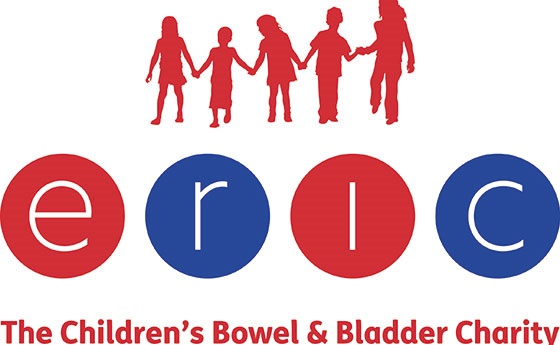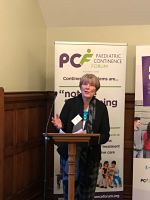Young people with continence problems need better support at secondary school

Dealing with continence problems at school is difficult and a lack of support and understanding from staff has an adverse effect on young people’s well-being and attainment.
About the research
Continence problems (daytime wetting, bedwetting, soiling, and constipation) are among the most common paediatric health problems and it is often believed that they resolve with age.
However, our recent research found that this is not the case: continence problems often persist into adolescence.
“Not life threatening, but life ruining”
In an average sized secondary school, there could be around 30-40 young people with continence problems. Continence problems are accidental and are not the child’s fault.
Young people with these problems experience high levels of depressive symptoms, peer victimisation, poor self-image, problems with relationships and negative school experiences.
Most sufferers go to great lengths to conceal their problems from peers and teachers and this can cause them to feel socially isolated.
“always thinking about it, always worrying about it”
Under the Children and Families Act (2014) schools are required to provide appropriate support for children and young people with health problems.
However, our recent findings indicate that the needs of young people with bladder and bowel issues are not being met.
This project worked with young people and secondary school staff to produce and promote information resources for secondary schools to help them support young people with continence problems.
Policy recommendations
• Continence problems are common in young people, but some schools are not complying with their legal duty to make arrangements to support children with a medical condition.
• Addressing the challenges starts with educating teachers and other school staff.
• Secondary school staff need support to understand their responsibilities and to know how to respond to the unique needs of young people with continence problems.
• The statutory guidance from the Department for Education on ‘Supporting Pupils with Medical Conditions at School’ should include guidance for schools on clear and discreet procedures to make disclosing continence problems easier for young people.
• Young people with continence problems may need extra time during exams and additional support to catch up with missed parts of lessons.
• This requires a national approach to address unequal provision between schools.
Research summary
This in-depth qualitative research, the first of its kind in the UK, explored the impacts of continence problems for young people at secondary school and the barriers to their effective management. The study also assessed current awareness, practices and future information needs of school staff.
• In 2015-16, in-depth interviews were conducted with 20 young people aged 11-19 with continence problems (as part of a larger study funded by the Medical Research Council).
• In 2018, a focus group was conducted with five young people aged 12-17.
• This research identified the range of experiences of young people with continence problems at secondary school.
• Focus groups were conducted in 2018 with secondary school staff (teachers, teaching assistants, school nurses, staff involved in pastoral care, safeguarding and additional needs support).
• Four schools in southwest England and Wales participated in the study comprising 15 participants in total.
• Staff in these schools helped us to learn about examples of good practice in supporting young people with continence problems.
Recommendations for schools
• All schools should have a clear and discreet procedure for pupils to disclose continence problems that respects their privacy and dignity.
• Schools should have clear policies for appropriate use of toilet/medical passes during class that do not draw attention to pupils with continence issues and they should ensure that supply teachers are made aware of these policies. Pupils with continence problems should be allowed access to disabled toilets.
• There should be clear procedures for catching up with lessons and arrangements for exams.
• Schools should have a designated person with expertise in dealing with continence issues.
• Healthy drinking habits should be encouraged in schools and young people should not be prevented from using water bottles in class.
• Teacher training on common health problems should include continence issues.
• Bladder and bowel issues should be integrated into Personal, Social and Health Education (PHSE) lessons.
Key findings
Department of Education
• Schools are legally required to have a medical conditions policy and provide adequate support to children with health conditions (Children and Families Act 2014). The department has a responsibility to ensure that schools are aware of the new duty and are effectively implementing it. Clear guidance should be provided outlining how schools can comply with their obligations regarding continence issues.
• The statutory ‘Supporting Pupils with Medical Conditions at School’ guidance needs to contain specific guidance on managing continence problems in secondary schools.
• OFSTED should routinely check schools’ policies for management of medical conditions.
Department of Health and Social Care
• DHSC should play a coordinating role in funding or further defining paediatric continence service provision, with Public Health England, to support progress against Public Health Outcomes Framework indicators 1.03 on pupil absence and 1.02 on school readiness.
• This issue requires closer working with the Department of Education on relevant policies and guidelines.
Regional Health Authorities and Health Care Professionals
• Local authorities could develop resources for secondary schools to improve staff awareness of continence issues, statutory obligations, and help them provide appropriate support to young people.
• School nursing services should be encouraged to play a role in working towards integrated paediatric continence services.
• School nursing services should continue to support children with continence problems and work collaboratively with school staff as they develop their procedures.
• Healthcare professionals, such as school nurses, should be encouraged to consider continence needs when developing a child’s Education Health Care Plan.
• CCGs, health boards, or health and social care boards, should work towards developing integrated children’s continence services that are sufficiently well resourced to meet the needs of the local population.
Paediatric continence specialists
• Could work to provide a policy blueprint for the Department for Education, local authorities, and academy trusts on the management of children with continence problems in schools and work to encourage this to be actively used nationally.
• Should continue to lobby for more detail about toilet provision and access within the Education School Premises Regulations (1999) for England and Wales.
Policy Report 38: October 2018
Policy-report-38-Oct2018-young-people-continence-schools (PDF, 160kB)
Further information
Research programme: Medical Research Council (MRC). Increasing understanding of risk factors and outcomes associated with continence problems in children and adolescents. 2014-17 (Awarded to Dr Joinson). MR/L007231/1
Heron J, Grzeda MT, von Gontard A, Wright A, Joinson C. Trajectories of urinary incontinence in childhood and bladder and bowel symptoms in adolescence: prospective cohort study. BMJ Open. 2017;7(3):e014238. DOI: 10.1136/bmjopen-2016-014238
Grzeda MT, Heron J, von Gontard A, Joinson C. Effects of urinary incontinence on psychosocial outcomes in adolescence. European Journal of Child & Adolescent Psychiatry. 2017;26(6):649-658. DOI: 10.1007/s00787-016-0928-0
Whale K, Cramer H, Joinson C. Left behind and left out: The impact of the school environment on young people with continence problems. British Journal of Health Psychology. 2018;23(2):253-277. DOI: 10.1111/bjhp.12284
'It happens to me too’, was launched in Parliament at an event hosted by Co-Chair of the All-Party Parliamentary Group for Continence Care, Rosie Cooper MP.
Acknowledgements
This research was funded by the Medical Research Council (MRC ref: MR/L007231/1) and the Economic and Social Research Council (ESRC ref: ES/M500410/1).
ERIC - The Children’s Bowel and Bladder Charity https://www.eric.org.uk/
The Paediatric Continence Forum (PCF). www.paediatriccontinenceforum.org
Bladder & Bowel UK https://www.bbuk.org.uk/





This important research highlights a hidden problem in secondary schools that can dramatically affect the wellbeing and educational attainment of the pupils concerned. Steps to increase awareness amongst teaching and allied staff of the needs and wishes of young people with continence (bladder and bowel) difficulties are much welcomed - as are the development of consistent policies to help young people carry out their treatment programmes discretely and without embarrassment
Authors
Dr Carol Joinson, Dr Katie Whale (University of Bristol);
Juliette Randall (CEO, ERIC-The Children’s Bowel and Bladder Charity)
Contact the researchers
Dr Carol Joinson: Carol.Joinson@bristol.ac.uk
Dr Katie Whale: Katie.Whale@bristol.ac.uk
It is disheartening when we hear time and again from parents, carers and young people themselves about their experiences at school. Being able to access clean, safe toilets when the need arises is a basic human right and ERIC has continually championed this with its ‘Bog Standard’ campaign and more recently through the ‘Right to Go’ campaign. Yet we are still being given examples almost daily of situations in school where there is a lack of understanding and empathy on the part of staff. The impact of this can be devastating for young people, severely affecting their potential to achieve as well as their mental and physical well-being. The measures recommended as a result of this project are tangible and engaging and at ERIC we are excited that these new tools will create new opportunities to raise awareness and reduce the stigma attached to wee and poo. We look forward to supporting the dissemination and implementation in schools across the UK

